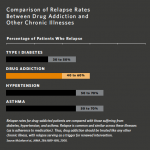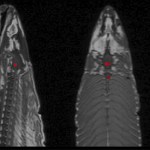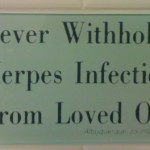Journalism
I'm heading to the airport right after my second class today (I'm doing two weeks of our first-year seminar class), to appear at the Quantum to Cosmos Festival at the Perimeter Institute in Waterloo. This promises to be a good event-- I had a great time at the Science in the 21st Century workshop last fall, and they've got a great program lined up for the festival.
I'm most likely going to attend tonight's tv broadcast, and tomorrow's "Quantum Physics in 60 Minutes" lecture (I have a professional interest in seeing how the competition does things), but I'm making the trip in order to appear…
From the NIDA media guide
Jared Diamond and the New Yorker's parent company have denied all charges in the "Vengeance is Ours" scandal:"
The defendants' attorneys listed 34 reasons, called "affirmative defenses," why they should prevail in the lawsuit. Among them are the contentions that the plaintiffs were not defamed and had not suffered any harm or actual injury to their reputations; that Diamond and The New Yorker had not acted with "actual malice" or with knowledge that The New Yorker story was false; that the article was "substantially true" and thus protected under the First and 14th…
I've simply got too much to do this week to review these articles with the time and thought they deserve, so I'd just like to point them out to you.
First, Scibling Bora has written a massive critique of "Investigative Science Journalism." It's well worth a read, but set aside some time for it. One of the interesting issues Bora addresses is trust:
Journalists display an inordinate amount of skepticism - even deep cynicism - about anyone's honesty. Everyone's a liar unless proven not to be. Scientists, knowing themselves, knowing their colleagues, knowing the culture of science where 100%…
No, it's not a stupid joke. It's my candidate for the worst press release title of September? "Neurons Found To Be Similar To U.S. Electoral College":
A tiny neuron is a very complicated structure. Its complex network of dendrites, axons and synapses is constantly dealing with information, deciding whether or not to send a nerve impulse, to drive a certain action. It turns out that neurons, at one level, operate like another complicated structure -- the United States, particularly its system of electing a president, through the Electoral College. (source).
Uh. . . thanks for that bizarre free…
Stanley Fish writes a provocative essay in the NYT on whether curiosity is tantamount to "a mental disorder," or even a sin:
Give this indictment of men in love with their own capacities a positive twist and it becomes a description of the scientific project, which includes among its many achievements space travel, a split atom, cloning and the information revolution. It is a project that celebrates the expansion of knowledge's boundaries as an undoubted good, and it is a project that Chairman Leach salutes when he proudly lists the joint efforts by the University of Virginia and the N.E.H…
An excellent post from language log:
I propose a voluntary ban on the use of generic plurals to express statistical differences, especially in talking to the general public about scientific results in areas with public policy implications.In other words, when we're looking at some property P of two groups X and Y, and a study shows that the distribution of P in X is different from the distribution of P in Y to an extent that is unlikely to be entirely the result of chance, we should avoid explaining this to the general public by saying "X's have more P than Y's", or "X and Y differ in P", or…
Dan Meyer, like most people, has long wondered whether there was a good way to predict which check-out line at the grocery store will be the fastest. Unlike most people, he used science to find an answer: "I spent ninety minutes last week just watching, counting, and timing groceries as they slid across a scanner." This produced a graph showing a roughly linear relationship between items in a cart and time spent checking out.
The conclusion: Each item adds 2.9 seconds on average, but each person adds 48 seconds on average. So you would rather be on line behind one person with a full cart than…
When old age shall this generation waste,
Thou shalt remain, in midst of other woe
Than ours, a friend to man, to whom thou say'st,
'Beauty is truth, truth beauty,--that is all
Ye know on earth, and all ye need to know.'
-John Keats, "Ode on a Grecian Urn"
On rereading the whole "Ode," this line strikes me as a serious blemish on a beautiful poem, and the reason must be that either I fail to understand it, or that it is a statement which is untrue. And I suppose that Keats meant something by it, however remote his truth and his beauty may have been from these words in ordinary use…
The editors of the Columbia Journalism Review weigh in on the media's uneven treatment of the health care debate:
So far this year 55 percent of coverage of health care has been about the political battles, 16 percent about the protests, and only 8 percent about substantive issues like how the system works now, what will happen if it remains unchanged, and what proposed changes will mean for ordinary people. To help reporters understand and analyze the debate, The Commonwealth Fund has sponsored a special supplement to the September/October issue of the Columbia Journalism Review.
Supposedly…
This morning, I'd like to point out two interesting stories on how the health care debate has become more irrational than rational. First, a WaPo op-ed decrying the imbalanced media coverage of health care, which may be leading to a perception that opposition is larger than it really is:
The most disturbing account came from Rep. David Price of North Carolina, who spoke with a stringer for one of the television networks at a large town-hall meeting he held in Durham. The stringer said he was one of 10 people around the country assigned to watch such encounters. Price said he was told flatly…
It's probably a good thing that I don't have full-text access to Mark Slouka's article in Harper's, with the title "Dehumanized: When math and science rule the school." Just the description in this Columbia Journalism Review piece makes me want to hunt down the author and belt him with a Norton anthology:
According to the article itself, the dehumanizing element of the school system (especially universities) is actually its focus on producing businesspeople and "ensuring that the United States does not fall from its privileged perch in the global economy." But "nothing speaks more clearly to…
The New York Times yesterday had a story with the dramatic headline DNA Evidence Can Be Fabricated, Scientists Show, explaining that, well, there are nefarious tricks you can pull to falsify DNA evidence, provided you have access to a high-quality biochemical laboratory. The story is a great boon to conspiracy theorists everywhere, especially with this sentence:
Dr. Frumkin is a founder of Nucleix, a company based in Tel Aviv that has developed a test to distinguish real DNA samples from fake ones that it hopes to sell to forensics laboratories.
"See! They're selling fake DNA samples to…
I read Scibling Jonah Lehrer's How We Decide some time ago, but Moveable Type ate my half-finished review, and it's taken me until now to get back to it. You may have seen quite a few reviews elsewhere by now - Adam Kepecs reviewed it for Nature back in April, and to make a long story short, I largely agree with him: Lehrer is a very good writer, but this is not a great book.
Lehrer starts his book with an airplane anecdote, so I'll do the same - although his opening anecdote is about crashing a plane (albeit a simulated plane), so I'm not sure I'd recommend the book for nervous flyers.…
I'm not a regular reader of USA Today, but Maria tweeted this story, and I feel like I need to say something about it or else risk leaving it rattling around in my head like marbles under a hubcap:
About 70% of Americans agree, either somewhat or strongly, that it's beneficial for women to take her husband's last name when they marry, while 29% say it's better for women to keep their own names, finds a study being presented today at the American Sociological Association's annual meeting in San Francisco.
Researchers from Indiana University and the University of Utah asked about 815 people a…
The initial reviews of Chris Mooney and Sheril Kirshenbaum's new book Unscientific America: How Scientific Illiteracy Threatens our Future produced a small blogospheric kerfuffle last month. But I think Unscientific America has much more constructive and useful things to offer than provoking more arguments, and there are a lot of reviews focusing on the positives. This surprisingly short but wide-ranging book is a nutshell primer on science policy and communication issues, perfect for dissatisfied lab rats who want to engage in advocacy but don't have communications or policy training outside…
So on my return to regular Scienceblogging, I see that Mike the Mad Biologist and Razib are taking exception to a point made by Megan McArdle in the Atlantic. McArdle observes that the heritability of weight is quite high - almost as high as the heritability of height:
Twin studies and adoptive studies show that the overwhelming determinant of your weight is not your willpower; it's your genes. The heritability of weight is between .75 and .85. The heritability of height is between .9 and .95. And the older you are, the more heritable weight is.
Okay: how you take that statement depends…
I'm a late addition to a Sunday panel at Worldcon:
Science Blogging - The New Science Journalism?
Touted as a new way of reaching the public, has science blogging matched its initial promise? Has it caused more problems than it solves?
Well? What do you all think?
. . . as soon as possible. As you may have noticed, Scienceblogs is having a few hiccups as it transitions to new servers. I'm having a few issues myself as I transition to a new apartment this week, so the blog will be fairly dead until everything gets straightened out.
In the meantime, here's a classic wince-inducing headline from the Albuquerque Journal (1984). Is this good advice? Bad advice? Who can tell!?
You can find many more like this on the tiles in the restrooms in DC's Newseum - I took this snapshot during the SEED Innovation Summit last month.
Have a great week!
On Wednesday, an article by Amanda Carpenter in the Washington Times riled ScienceBlogger Jessica Palmer and others for its sensational claims and misrepresentation of facts. The article accuses presidential science advisor John Holdren of advocating extreme population control methods like mass sterilization and forced abortions, policies which Holdren discussed in a 1977 ecoscience textbook of which he was third author. But Holdren never expressed an opinion on such practices, and as Jessica explains, "there is a big difference between describing a conclusion made by others, and drawing a…
In this post, I continue working through my thoughts in response to Chris Mooney and Sheril Kirshenbaum's new book, Unscientific America. In this post, I focus on their discussion of the mainstream media and of the blogosphere. You might guess, given that I'm a member of the science blogosphere, that I have some pretty strong views about what blogs might accomplish in terms of helping the public engage with science. You would be correct.
A fair portion of Unscientific America: How Scientific Illiteracy Threatens Our Future (reviewed here) explores conditions of American life that make it…





